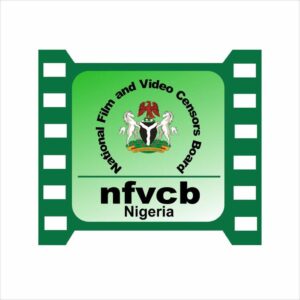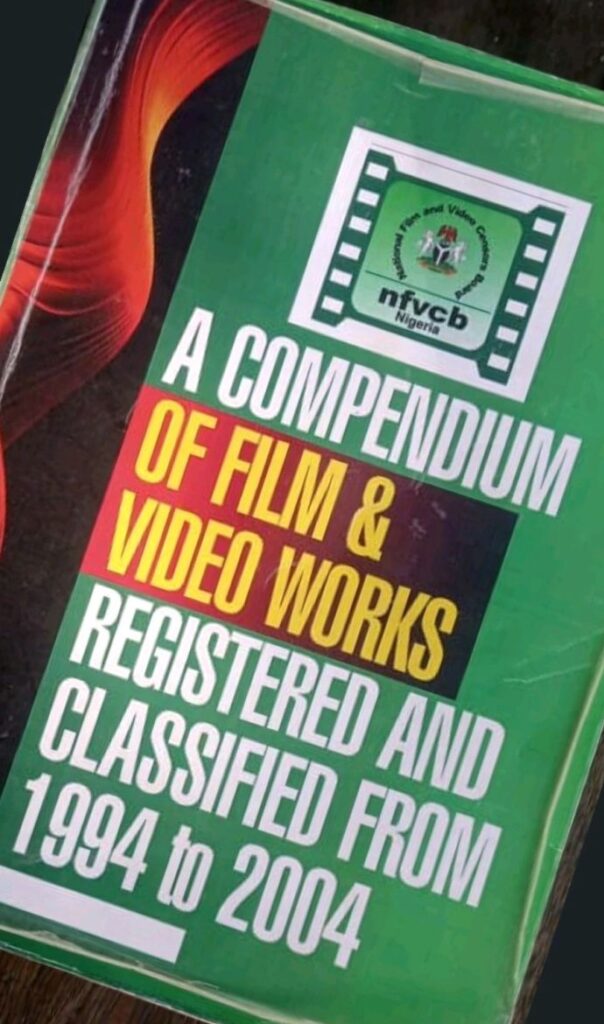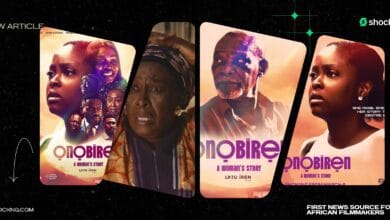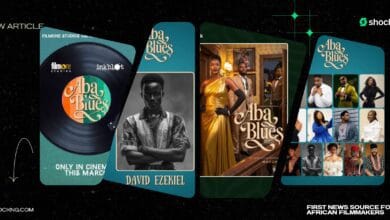The Story⚡
Nigeria’s hidden video film history is finally about to come to light.

Tell Me More
In a recent LinkedIn post, the Executive Director and CEO of the National Film and Video Censors Board (NFVCB), Dr. Husseini Shaibu, announced a landmark initiative that promises to reshape the historical documentation of Nigerian cinema. The board is set to release three volumes of books cataloguing all films and videos registered and classified in Nigeria since the inception of the video era.

Announcing the news with a preview of the book cover, Shaibu wrote, “We are ready with this book that documents our Nollywood filmography from the video era.
We present this volume—the first of three volumes—in September… Join us!” The shared image featured the cover of the first volume, titled A Compendium of Film & Video Works Registered and Classified from 1994 to 2004.

This announcement marks a groundbreaking moment for Nigeria’s film industry, which has often been celebrated globally for its cultural output but historically criticized for its lack of formal documentation and archiving.
Despite being the world’s second-largest film industry by volume, Nollywood has operated for decades without a central, publicly accessible filmography—a gap that has complicated efforts in research, journalism, policy development, and global positioning.
For film journalists, critics, historians, and scholars, this compendium is not just a reference book; it is a long-overdue resource that provides year-on-year data on films produced in Nigeria. It offers clarity, validation, and structure to the evolution of Nigerian cinema, especially during the influential video film era that shaped Nollywood’s identity in the 1990s and early 2000s.
By taking this step, the NFVCB is not only preserving Nigeria’s cinematic heritage but also laying a foundation for the industry’s future—where data, history, and storytelling are properly recorded and celebrated. It’s a welcome move toward accountability, visibility, and academic engagement for one of Africa’s most vital cultural industries.
In Summary
At a time when conversations around archiving, rights management, and the global positioning of African content are gaining momentum, these volumes arrive as essential tools.
With Nollywood expanding into digital platforms and international markets, having a documented history is no longer optional—it’s strategic. The NFVCB’s move meets the moment, offering structure to a fast-growing industry that can no longer afford to forget its roots.

.
Thanks for Reading.
Shockng.com covers the big creators and players in the African film/TV industry and how they do business.
Let’s be friends on Instagram @Shockng



